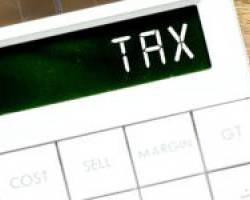In this article, we inform taxpayers about tax control and tax inspection, share the procedure for conducting tax inspections, common violations and some of our recommendations on legal protection of the taxpayer during tax inspections and tax audits. Below we explain the necessary points and our recommendations that came out in the process of tax law support provided to the clients of the Caspian Legal Center law and tax consultancy firm. The article is solely for informational purposes and no part of this article should be used or referred to as advice or opinion. For inquiries, contact us via: [email protected]; +994 50 289 89 73 (Mobile/WhatsApp) 1.1. Tax control and tax inspections: what shall a taxpayer know? 1.1.1. What is a tax control? Tax control is a unified system of control over compliance with tax legislation. The purpose of this control by the tax authority is to ensure full and timely collection of taxes. 1.1.2. What forms of tax control are implemented? Tax authorities carry out tax control in the following forms: accounting of taxpayers and taxation objects by checking accounting and reporting data by analyzing related data by surveying taxpayers and other persons by inspecting the buildings (areas) used for generating income, or collecting information about the activities of those facilities also implementing in other forms defined by the Tax Code As concrete practical types, operational tax control, on-site tax audit and off-site tax audit are the main types of tax inspection. 1.2. Which authority conducts tax inspections and overal tax control?
In this article, we inform taxpayers about tax control and tax inspection, share the procedure for conducting tax inspections, common violations and some of our recommendations on legal protection of the taxpayer during tax inspections and tax audits. Our tax attorneys in Azerbaijan are ready to provide full support during tax inspections and appeals from final assesment decisions.
Below we explain the necessary points and our recommendations that came out in the process of tax law support provided to the clients of the Caspian Legal Center law and tax consultancy firm. The article is solely for informational purposes and no part of this article should be used or referred to as advice or opinion. For inquiries, contact us via: [email protected]; +994 50 289 89 73 (Mobile/WhatsApp)
1.1.1. What is a tax control?
Tax control is a unified system of control over compliance with tax legislation. The purpose of this control by the tax authority is to ensure full and timely collection of taxes.
1.1.2. What forms of tax control are implemented?
Tax authorities carry out tax control in the following forms:
As concrete practical types, operational tax control, on-site tax audit and off-site tax audit are the main types of tax inspection.
1.2. Which authority conducts tax inspections and overal tax control?
Tax control is carried out by the State Tax Service under the Ministry of Economy of the Republic of Azerbaijan, as well as the State Customs Committee of the Republic of Azerbaijan.
The control over the calculation of local taxes (municipal taxes) in accordance with the legislation and their full and timely payment is carried out by the tax service bodies of the municipalities.
2.1. What is the purpose of the tax inspection?
The purpose of the inspections are as follows:
The subject of the inspection is the assessment of the entrepreneur's compliance with mandatory requirements.
When unclear or contradictory provisions of mandatory requirements for entrepreneurial activity are found, the provision that is more favorable to the entrepreneur shall be applied.
Liability measures for the violation of mandatory requirements for entrepreneurial activity are determined only by the laws.
2.2. What are the types of the tax inspections?
The forms of tax inspection are on-site, off-site tax audits, and operational tax control.
Off-site tax audit is implemented by tax authority without attending the premises of the taxpayer. During the inspection, the documents about the activity of the taxpayer and the information of the known source are used.
On-site tax audit is implemented directly at the premises (offices, buildings and other places) where the taxpayer operates (place of activity).
Operational tax control is a form of tax control carried out in warehouses, trade and other similar buildings (lands) related to the storage of taxed objects or stocks of goods and materials, excluding residential buildings (areas), used for entrepreneurial activities to generate income, as well as in vehicles (excluding personal vehicles not used for entrepreneurial activities).
2.3. On-site tax audit
On-site tax audit covers the taxpayer's activity not exceeding the last 3 calendar years in terms of corporate income tax, profit income tax, property, and land taxes, including the year in which the inspection is conducted for other taxes, encompassing the taxpayer's activity not exceeding the last 3 years.
The inspection concerning income obtained abroad may cover a period not exceeding the last 5 years. When a criminal case is initiated, this period may extend up to 7 years accordingly.
On-site tax audit can be both ordinary and extraordinary. Before the next periodic mobile tax inspection commences, the tax authority must send a written notice to the taxpayer at least 15 days in advance.
2.3.1. The duration of on-site tax audit
As a general rule, on-site tax audit should not exceed 30 business days. In exceptional cases, the duration of on-site tax audit can be extended up to 90 business days based on the decision of higher tax authority.
The duration of on-site tax audit can be extended in the following cases:
It is prohibited to carry out on-site tax audits on taxes paid or payable by the taxpayer for the tax period audited by the tax authority (except for audits conducted in the cases specified in Article 38.3 of the Tax Code).
2.3.2. Suspension of on-site tax audit
Based on the reasoned decision of the tax authority that has adopted the inspection decision, the next or extraordinary mobile tax inspection is suspended (postponed), but not exceeding 9 months, in the following cases and periods:
1. when the person is not found at the registered addresses in the tax authority or when it is not possible to determine the person's location for other reasons - until the person's location is determined;
2. when the head of the taxpayer (or the person substituting for them, or the person responsible for tax or financial matters) or the individual entrepreneur temporarily loses their ability to work - until their ability to work is restored;
3. when a specialist is invited or an expertise is conducted at the initiative of the tax authority - until the opinion of the specialist or expert is presented to the inspection;
4. when documents necessary for the objective and profound conduct of the on-site tax inspection, including responses to inquiries sent abroad, are received from a foreign country - until a response is received from the foreign country;
5. when a representative of the tax authority participates in the tax inspection on the territory of a foreign state to obtain relevant information or documents related to the on-site tax audit conducted on the taxpayer - until the completion of the inspection conducted in the foreign country.
2.3.3. Act (decision) on “On-site tax audit”
The tax authority must adopt an act as a results based on the on-site audit. The "Act on the Results of the on-site Tax Audit” should be accepted within 3 business days after the completion of the inspection.
This period can be extended up to 30 business days only in the following cases:
2.4. Off-site tax audits
Off-site tax audit is conducted within 60 working days after the submission of the tax declaration (quarterly certificate) in relation to profit and income tax declaration, and in relation to other declarations, as well as certificates on the calculation of current tax payments within 30 working days.
If relevant information is received from the competent authorities of foreign states regarding income obtained abroad, off-site tax audit is conducted within the period specified in Article 85.4 of the Tax Code, which is 90 business days from the date of receipt of such information.
After this period expires, off-site audit cannot be conducted again. After the off-site tax audit is completed, if the tax authority discovers additional documents or other information known sources for the calculation of tax, the taxpayer is notified to submit a clarified report within 5 business days, as stipulated in Article 72.5 of the Tax Code, within a period of 10 business days.
2.5. Operational tax control
Operational tax control is a form of tax control implemented at the location of entrepreneurial activity. Operational tax control can cover issues specified in Article 50.1 of the Tax Code. This includes evasion of income declaration, concealment of turnover, goods, money, labor contract signing, and other related matters.
Operational tax control is carried out based on the reasoned decision of the tax authority. The following must be reflected in that decision:
It should be taken into account that, on the one hand, the purpose of tax legislation is to ensure the timely and proper entry of taxes into the state budget, and on the other hand, it is to prevent illegal interference with the property rights of a person. To ensure this, the examining tax authority must comply with the procedural and material requirements of the law. In case of such violations, the inspection and the act adopted as a result of it should be considered illegal.
3.1 Failure to properly document the inspection
There must be a written decision to conduct inspections and the decision must be in full accordance with the form in the law. This information should also be updated in the register when the inspection period is extended. In addition, unreasonably prolonged inspections should also be considered illegal. According to the position of the Supreme Court, since the right to extend the inspection is a discretionary power of the tax authority, this power must be proportionate to the purpose of the interference with the right of the entrepreneur, and the reason for the extension must be reasonable and necessary.
Inspections that are not registered from the unified information register, including the fact that the register information is not updated according to the inspection facts, have no legal consequences.
The inspector cannot be given the powers to limit the activity of the entrepreneur, review the inspection materials and make a decision on the results, apply liability measures, and collect fines.
The inspector cannot check issues that do not belong to the control area of the inspection body he represents and get acquainted with the materials related to those issues.
If these rules are not followed, the inspection and its result should be considered illegal.
3.2. Failure to conduct necessary investigations regarding " Black Box Accounting” documents
Based on judicial experience, it is inadmissible for the tax authority to rely on "black box accounting" documents with unidentified sources and questionable credibility for the calculation of additional taxes. It should be noted that "black box accounting" documents must be evaluated alongside other irrefutable sources for tax calculation purposes.
Furthermore, "black box accounting" documents should provide sufficient information for tax calculation. These documents should establish the ownership of the calculations to the person who conducted them. Additionally, they should specify the nature of the transactions, such as purchases, sales, debts, etc., along with details regarding the goods (work, service), including name, type, measurement, quantity, duration of the transaction, and whether money was involved.
During the tax audit, the tax authority should not solely rely on the information obtained from "black box accounting" documents. Instead, they should conduct additional investigations into the reliability of such information and provide credible evidence related to the taxpayer's actual production cycle.
3.3. Improper justification of extraordinary on-site tax audits
Based on court experience, the tax authority must justify its decision to conduct an audit. Extraordinary tax inspections are possible only in cases specified in the Tax Code (established in Article 38.3). For instance, an extraordinary tax inspection may be conducted when excess value-added tax (VAT), interest, and financial penalties have been applied towards the payment of other taxes, interests, or subsequent liabilities (Article 38.3.3 of the Tax Code). In such cases, the extraordinary tax inspection can only be conducted regarding the taxpayer's transactions subject to VAT.
When making a decision to conduct an extraordinary on-site tax audit, it is not sufficient for the tax authority to simply refer to the specific norm of the law. In terms of the requirements of legal certainty principles, the regulatory body must explain the cases and information envisaged in the norm it refers to, precisely indicate the nature of the information obtained by the tax authority, and justify in its decision the cases and information that necessitate the initiation of the audit.
3.4. Incorrect calculation of cost of sales
In some cases, the tax authority may seek the opinion of a specialist or expert to determine the cost of production of a product in a manufacturing facility. However, a common mistake allowed in such opinions is the failure to accurately determine the production volume in accordance with the classification of expenses that should be included in the cost of production.
According to judicial practice, based on the principles of product cost calculation in accounting, it was determined that the product cost consists of the following cost elements: raw materials and materials; returned waste; fuel energy and water for technical purposes; basic wages of production workers; additional wages of production workers; deductions for social insurance; equipment maintenance and operation costs, including depreciation; general factory expenses; total plant costs; waste products and losses; other production costs; the full cost of the commodity product.
3.5. Unreasonable use of related information when calculating tax payable
The right of the tax authorities to calculate the amount of tax due using the relevant information (also from the data of the taxpayer engaged in similar activities in the tax authority) does not imply the right of choice in relation to that information, but the right to calculate it using that information. In other words, the tax authority has the right to calculate using those data, but is not always obliged to do so. However, if it decides to make a calculation, the tax authority is also obliged to justify this decision, that is, to explain why it uses its right in this way.
It should be taken into account that the order in Article 67 of the Tax Code serves those purposes and should be interpreted in terms of these purposes. The requirements of the principle of proportionality must be followed during the exercise of discretionary powers by the administrative body related to the calculation using related data, the interference with the rights of the person must be useful, necessary and proportionate to achieve the legitimate goal that the administrative body wants to achieve.
3.6. Expert opinion determining the real market price
A direct reference to an expert opinion without taking into account legislative acts for the calculation of the market price is unfounded.
According to court practice, market price does not mean the price determined by expert opinion, but the price determined by mutual agreement of the parties based on supply and demand, and participants in market relations can only sell goods whose prices are regulated by the state based on the price determined. In other cases, they are free to determine the selling price. The real market price is the price offered by the buyer and paid to the seller.
In particular, it should be noted that if the market price cannot be determined by similar prices of goods or services of the same type and the same characteristics, it should be calculated based on the subsequent (re)sale price, and if this is not possible, it should be calculated by the method of cost accumulation (taking into account costs and profits). Only if there are no results with these methods, you can turn to an expert opinion.
3.7. Market Price Determination by Considering Real Business Conditions
When determining market prices, it is crucial not to simply calculate based on similar prices but to also consider essential factors stemming from the characteristics of the business. According to the Tax Code (14.6.1), the following factors that affect prices should be taken into account:
In practice, within marketing policy, planned discounts become topics of discussion. In this case, the market value should be calculated not the real business price, but the selling price.
In court practice, the location floor of the leased property, even the direction of the business activity of the business entity, was taken into account in determining the market price of the property for rent.
3.8. Method of determination of conventional rate of return
In certain cases, when income and expenses are not properly documented, profits are calculated based on a conditional profitability ratio. If, during an audit, a taxpayer's conditional profitability is calculated based on relevant information, this should be considered a violation of Article 67 of the Tax Code.
Thus, by using the related information in Article 67.1 of the Tax Code, taking into account the indicators on similar taxpayers and the special circumstances in Article 67.2, i.e. by finding the specific weight of the tax in the income and expenses deducted from the income in the similar information, the profit for the audited entrepreneur should be calculated.
However, calculating profit based directly on a 20% conditional profitability ratio using relevant information without going through this process, i.e., without proving the impossibility of the data provided, is considered a violation of the Tax Code.
Based on established legal precedents, calculating profit based on a 20% conditional profitability ratio relying on relevant information without verifying the reliability of expense documents is deemed illegal. Additionally, the application of the conditional profitability ratio should not be understood as the arbitrary selection of one of two methods predetermined for the tax authority. It should be proportional and necessary for achieving the intended purpose, similar to other instances of exercising discretion.
3.9. Failure to comply with deadlines during the off-site tax audits
When the tax authority fails to make a decision on the off-site audit within the deadlines specified in the Tax Code, the legal consequences of the decision made after the delayed period are not valid. According to judicial practice, the extension of the 30-day period in this case is considered a violation of administrative enforcement procedures.
It should be noted that based on the amendment in force from January 1, 2024, the period for off-site tax audits has been set at 60 business days for income and profit tax returns and current searches, and 30 business days for other cases.
3.10. Failure to justify the decision made as a result of the tax audit
The legislator requires that the result of the inspection be fully justified in the form of a decision. This rationale is evaluated on a case-by-case basis. However, according to established judicial practice, a decision that is not fully justified in its essence, and is satisfied simply by referring to an external expert's opinion or articles of legislation, is not considered fully justified. For example, the formula for calculating the additional tax amount should be clearly justified in the decision itself. Reference to expert opinion does not replace this obligation.
An appeal can be filed against the decision made by the tax authority on the results of the inspection.
Complaints about such decisions (acts), as well as actions (inaction) of officials of tax authorities, are submitted to the higher tax authority (higher official) within 3 months from the day when the taxpayer knew or should have known that his rights were violated.
An appeal against the tax authority's decision is reviewed within 30 working days, and a written response is given to the person who filed the appeal. In cases where more than 30 working days are required to determine the important circumstances of the complaint, the period for considering the complaint can be extended by the tax authority once for a period of 30 working days. The person who complained about the extension of the period is informed within 3 working days.
External tax support and specialized legal services in tax matters approach tax audits in a specific manner, avoiding conflicts of interest during potential exposures and risks (meaning they can clearly demonstrate what is correct and incorrect to the owner and the company). As a result, a more transparent and accurate legal support system is established during tax operations and audits.
CLC tax attorneys and specialists in tax disputes can offer you the following services:
In most cases, establishing a defense mechanism for the protection of your rights is easier and cheaper than restoring them after they have been violated, which requires more resources and time. Therefore, early involvement of professional support is extremely important during tax inspections and audits.
For professional defense of your rights and protection of legal interests during tax inspections and audits, contact us now via email and mobile number:
[email protected]; [email protected]; +994 50 289 89 73 (mobile and WhatsApp)
Tax Insights for Multinational Enterprises Article "Tax Developments in Azerbaijan and Iss...
Obtaining Tax Residency Certificate in Azerbaijan is provided for by the “REGULATIONS for adminis...
Here we explain the taxation of capital gains in Azerbaijan.
The Convention between the Government of the Republic of Azerbaijan and the Government of the Uni...
Azerbaijan applies “physical presence” method (“mechanical” test) for determining tax residency o...






